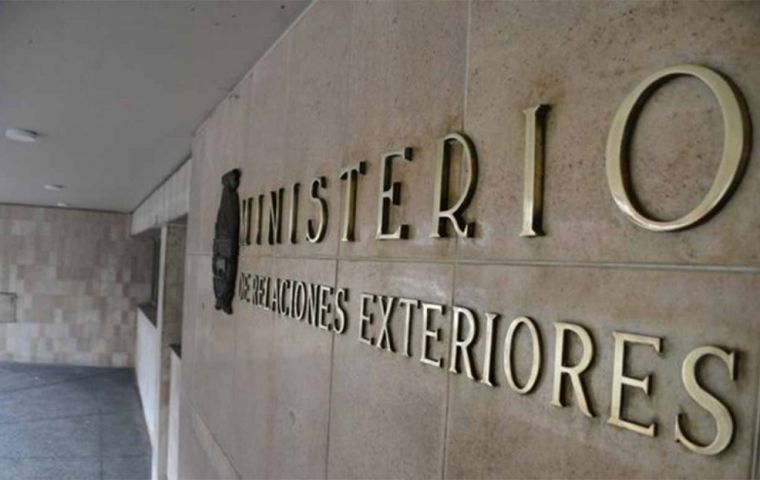MercoPress. South Atlantic News Agency
Uruguay calls Nicaraguan elections “illegitimate” – Argentina does not want to interfere
 While Argentina chose to adhere to “the tradition of non-interference,” Uruguayan authorities insisted Ortega's regime should free all political prisoners
While Argentina chose to adhere to “the tradition of non-interference,” Uruguayan authorities insisted Ortega's regime should free all political prisoners Uruguay's Foreign Ministry Monday said the electoral process in Nicaragua which led to a new five-year term for the incumbent President Daniel Ortega and his Vice President wife Rosario Murillo lacked “legitimacy.”
The Uruguayan authorities also insisted Ortega's regime should free all political prisoners at once.
“These elections lack legitimacy, as they have not been framed by internationally recognized standards, subject to independent and impartial control bodies, nor have the due guarantees for the participation of all political actors,” the Foreign Ministry said in a statement.
“Nor did the Nicaraguan authorities ensure the full validity of freedom of expression, participation and assembly,” the declaration went on.
“On the contrary, the government of that country proceeded to arrest several significant number of presidential candidates in the months prior to the electoral act, also arresting numerous members of opposition parties, also violating the guarantees of transparency, inclusion and verification, essential to any democratic process,” it added.
”Uruguay reiterates its call to the Nicaraguan government to immediately release political prisoners, ensuring respect for their freedom, personal integrity and the right to political participation,“ the Foreign Ministry also demanded.
Meanwhile, Argentina chose to adhere to “the tradition of non-interference,” despite the almost unanimous worldwide condemnation. The Casa Rosada took great care not to question Ortega, stating that ”within hours of the end of the election, we maintain our diplomatic tradition of non-interference in internal matters in other nations.“
”The Argentine Republic ratifies its historic commitment to the defence of Human Rights and firmly supports the work of the United Nations High Commissioner, Michelle Bachelet, regarding the situation in Nicaragua,“ the Argentine Foreign Ministry said in a statement.
It also pointed out its ”concern over the arrest of opposition leaders“ and ”the need for the Nicaraguan government to ensure respect for the human rights of the entire population.“
“In Argentina, we understand that democracy means respecting ideological diversity and civic participation without proscriptions. We must accompany the Nicaraguan people so that they can recover dialogue and democratic coexistence as soon as possible,” the declaration went on.
Last month, the Argentine government abstained from voting on an OAS resolution to insist that Nicaragua released all presidential candidates and political prisoners and restored full political rights to its citizens. The resolution was approved by 26 countries. Seven others, including Mexico, Guatemala and Argentina, abstained.
Argentina's stance would allow the country to maintain diplomatic ties with Nicaragua while condemning “physical blockades and financial” sanctions which only add to the suffering of the Nicaraguan people.
Fully supporting Ortega were Venezuela, Cuba, Bolivia and Russia.
”Peace triumphed in Nicaragua! The Nicaraguan people have given the world a forceful lesson in democracy. Honoring their heroic Sandinista heritage, which granted, through the vote, a great victory to the #FSLN. Long live Sandino! Long live Nicaragua! Long live Commander Daniel!,” wrote Nicolás Maduro on Twitter.
Bolivia's Foreign Ministry “salutes the brother Nicaraguan people for their participation and democratic vocation in the electoral process.“
“Congratulations to the brother people of Nicaragua, Daniel Ortega and Rosario Murillo, for the result of the elections,” Cuban President Miguel Díaz-Canel said on Twitter.
Ortega won with 75.92% of the votes, ahead of Walter Espinoza (14.15%). Four other parties played a marginal role, with between 3.3% and 1.7% of the vote.




Top Comments
Disclaimer & comment rulesCommenting for this story is now closed.
If you have a Facebook account, become a fan and comment on our Facebook Page!